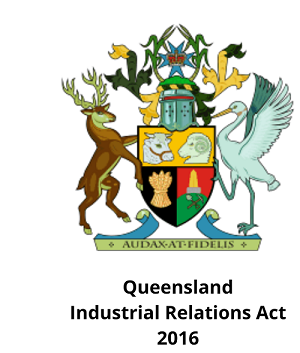Unfair Dismissal – the crucial elements of procedural fairness
| Next Article |
By Jaaden Morrall, Senior Workforce Advisor
Any termination of employment comes with the risk of litigation. In Local Government, this usually will be an Application for Reinstatement with the Queensland Industrial Relations Commission (QIRC). The provisions for unfair dismissal are provided for in Division 2, Part 2 of Chapter 8 of the Industrial Relations Act 2016 (Qld) (IR Act), which states that “a dismissal is unfair if it is harsh, unjust or unreasonable.” An application for dismissal must be made within 21 days after the dismissal takes effect
and remedies can include reinstatement, including payment of remuneration lost (which may also include leave accruals), or compensation of up to 6 months of the employee’s wages.
It is crucial Councils understand what is required of them when dismissing an employee, as we’ve seen many cases where the QIRC has determined that even though the reason for dismissal was warranted, a lack of procedural fairness during the disciplinary process resulted in a finding that the dismissal was unjust or unreasonable.
A recent case within the Fair Work Commission (FWC) (a non-binding but persuasive jurisdiction to the QIRC), Deidre Te Wano v Just Property Management Pty Ltd [2022] FWC 2493, saw an employee working within a property management group dismissed without notice. The employer made this decision after the employee tested positive for COVID-19, only five days after ignoring a directive from her employer to wear a mask when inspecting the property of an aged care worker.
The Commissioner found that the dismissal was “harsh”, but also found that had the employer provided notice of termination, or alternatively, made a payment in lieu of notice, the dismissal would not have been determined “harsh”. The employer in that case was ordered to pay $1,500.00 in compensation.
The decision highlights the importance of ensuring that even where a reason for dismissal is warranted, councils should, in addition to complying with statutory obligations under the Local Government Regulation 2012 (Qld), most importantly Section 283, still ensure a procedurally fair process is followed – including where the employer feels dismissal without notice is warranted.
Under Section 121 of the IR Act, you may dismiss an employee without notice, where the employee has been found to have engaged in ‘misconduct’ of a type that would make it unreasonable to require the employer to continue the employment during the notice period. Misconduct, under the IR Act includes, theft, assault, fraud and other misconduct prescribed by a regulation.
Adverse Action
Another risk that can arise from a termination of employment is a general protections claim, which is often referred to as an adverse action claim. General protection claims can be for reasons other than dismissal and can also be available to a prospective employee during a recruitment process.
General protection provisions are provided for in the IR Act in Sections 278 – 314, and it occurs where a person has taken adverse action against a person that violates their protections. A person’s protections are provided for under the IR Act and include workplace rights (access to entitlements or right to make a complaint), freedom of association (industrial action, union membership, etc.) and protection from workplace discrimination. General protection claims come with a reverse onus of proof, meaning the respondent is required to prove that the complaint is not justified.
In a recent case, Kantor v WISR Finance Pty Ltd [2022] FCFCOA 672, even harsher penalties were imposed on an employer following an employee’s dismissal. A non-bank lender’s CEO determined a joke made over Skype by one of their managers was inciting violence within the workplace. The comments made by the Manager to a colleague consisted of statements, to the effect of, “I feel like punching someone lol” after explaining she only had two matters settle that day. The colleague responded stating, “I will uppercut them for u”, with the Manager replying, “you better”.
The Manager received a “notice of a disciplinary meeting” for the online comments just days after making a workplace complaint about her colleague, for their behaviour towards her, and other inappropriate conduct. Within hours after the disciplinary meeting, the Manager was given notice of termination, effective immediately, on the grounds of her comments being considered an imminent threat to the health and safety of her colleagues.
The Manager lodged a breach of general protections claim in the Federal Circuit Court, and Judge Forbes found that the Manager’s complaint was the reason the employer had investigated her online comments, and had the complaint not been raised, it was unlikely that the comments would have been discovered.
Judge Forbes found that the Managers employment was not dismissed because of the Skype comments “at all” and that the substance of the Manager’s workplace complaint had resulted in the CEO to act harshly, opportunistically and with greater force than would have been the case had the Manager not made the workplace complaint.
Further, Judge Forbes stated: “I believe that the CEO’s reaction to fewer than 10 words in a body of fairly benign informal Skype chat has been exaggerated.”
As a result, the Judge found that the reasons for dismissal were due to the Manager making a workplace complaint, in breach of the FW Act’s general protection provisions. The court subsequently ordered WSIR Finance to pay the Manager six months of lost income in compensation, or about $45,754.00, as well as $7,000.00 in compensation, for the distress it had caused her.
At the time of writing this article, the court is still to determine civil penalties against WSIR Finance for the unlawful conduct.
The Peak Services Legal Team encourages you to contact us prior to making any decisions about proceeding with terminating the employment of one of your staff members. You can contact us on (07) 3000 2148 or as part of your member services phone the LGAQ IR Helpdesk on 1300 542 700.
